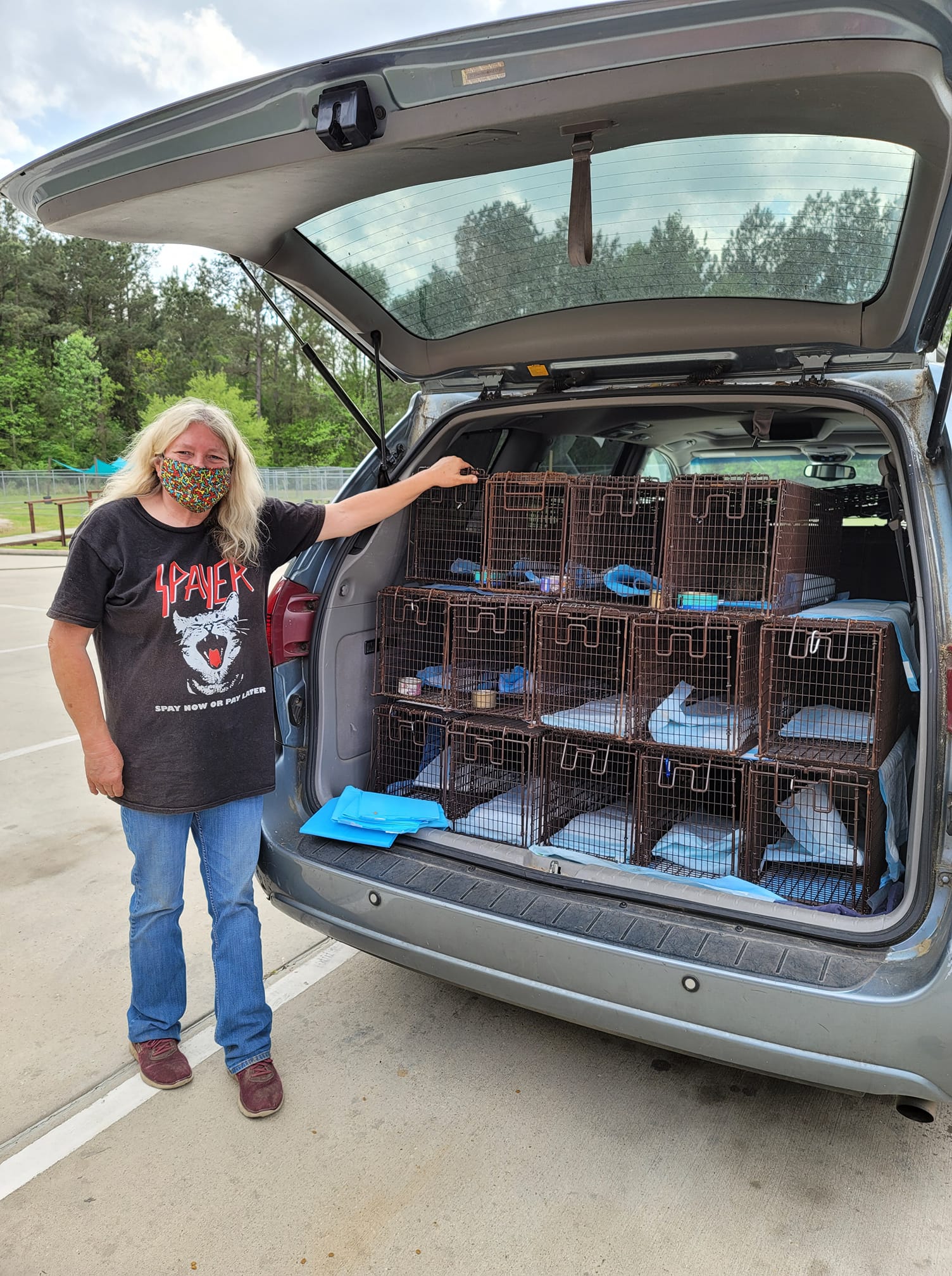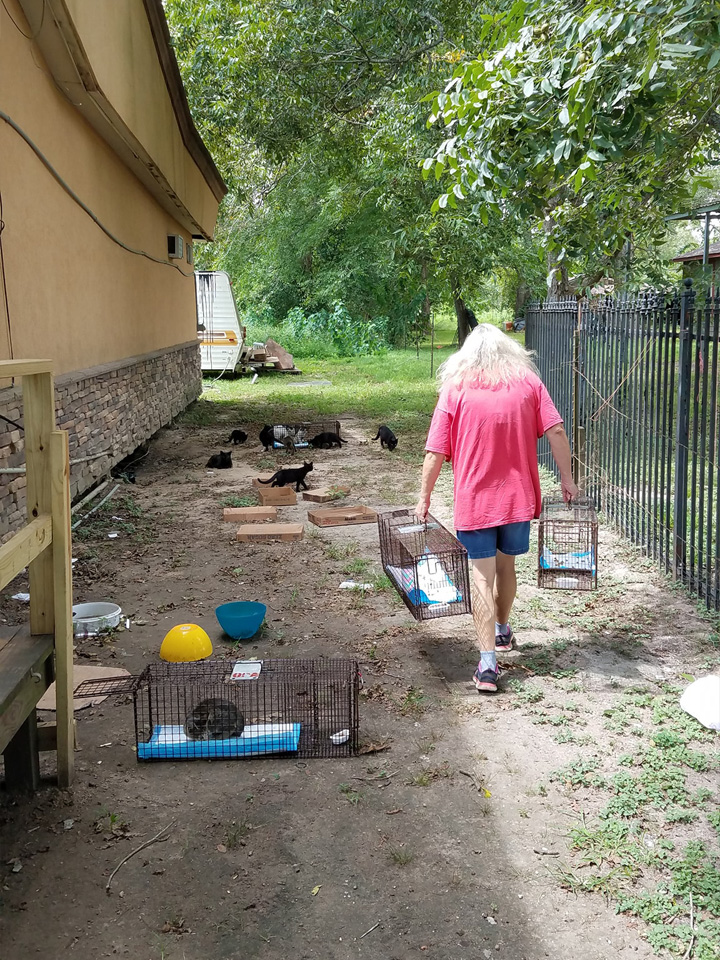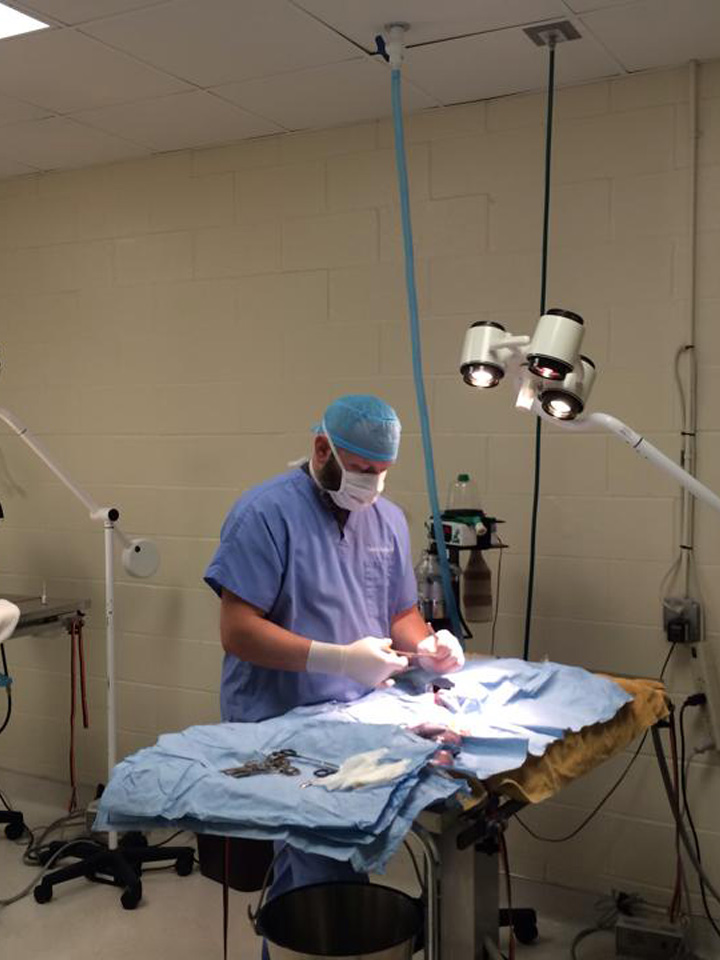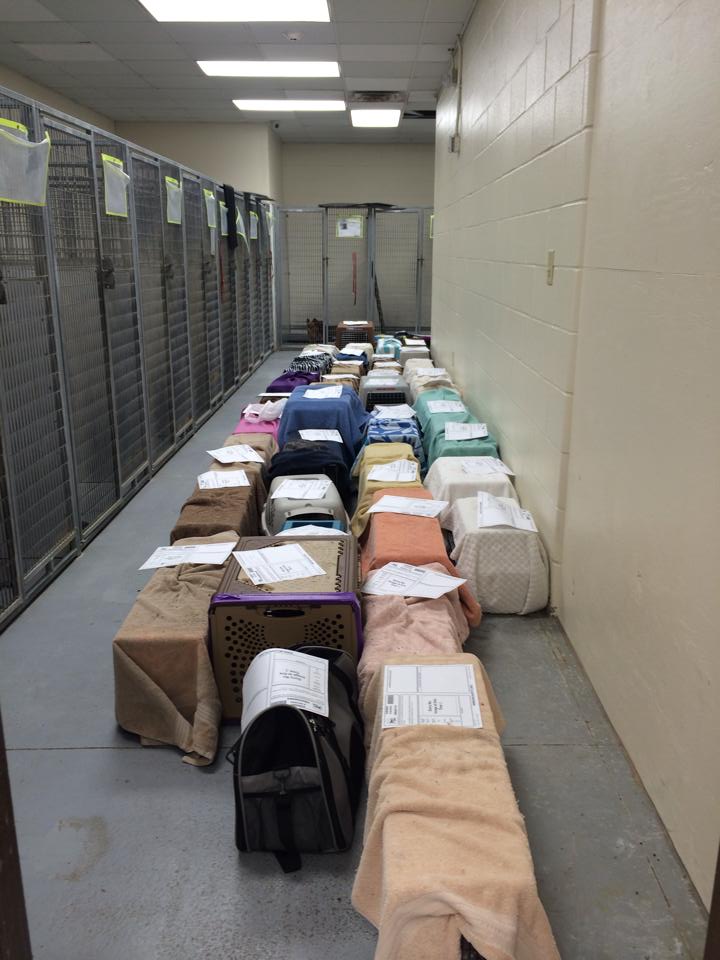TNR

Trap, Neuter, Return
Feral cats taken to a shelter are typically killed. With TNR feral cats are trapped, sterilized, vaccinated then returned to their colonies or placed for adoption if necessary. A feral cat’s cropped left ear signifies it has been altered and vaccinated. With proper monitoring, feral cats can live long, happy lives. Volunteer opportunities include fostering overnight and then transporting to and from the spay/neuter clinic.
Using this technique, all the feral cats in a colony are trapped, neutered and then returned to their territory where caretakers provide them with regular food. Young kittens who can still be socialized, as well as friendly adults, are placed in foster care and eventually adopted out to good homes.
Another significant advantage to TNR is that, when practiced on a large scale, it lessens the number of kittens and cats flowing into our local shelters. This results in lower euthanasia rates for cats and allows for the increased adoption of cats already in the shelters.
Finally, TNR is an idea whose time has come. It recognizes there is a new balance in our urban and rural landscape, one that includes feral cats. It seeks to manage this new population with enlightened techniques that allow the cats to live out their lives and fulfill their natures, while minimizing any possible negative impact. TNR is a movement that will continue to grow as more and more caring people see its potential and, in time, it will become the predominant method of feral cat management.
Need TNR Help?
TNR ADVANTAGES
- Stabilizes the size of the colony by eliminating new litters.
- Reduces nuisance behavior often associated with feral cats including yowling, fighting and spraying by unneutered males.
- Managed colonies prevent unneutered males from moving in and starting another breeding cycle.
- The cats provide natural rodent control.

Trap
Cats are coaxed into traps lined with potty pads and then moved into volunteer vehicles where they are covered in donated blankets and towels.

Neuter/Spay
Cats are taken to our partner veterinarian clinics where they received their neuter or spay surgery. Cats are also given a check up to ensure they are in good health and do not need any additional medical care before we return them to their colonies. Cats’ left ears are also tipped to show that they have been altered.

Return
After surgery, the cats are again placed in covered crates and carriers to help reduce stress. Once ready, the cats are returned to their colonies. Occasionally cats will be evaluated to be placed in our foster or barn cat program.